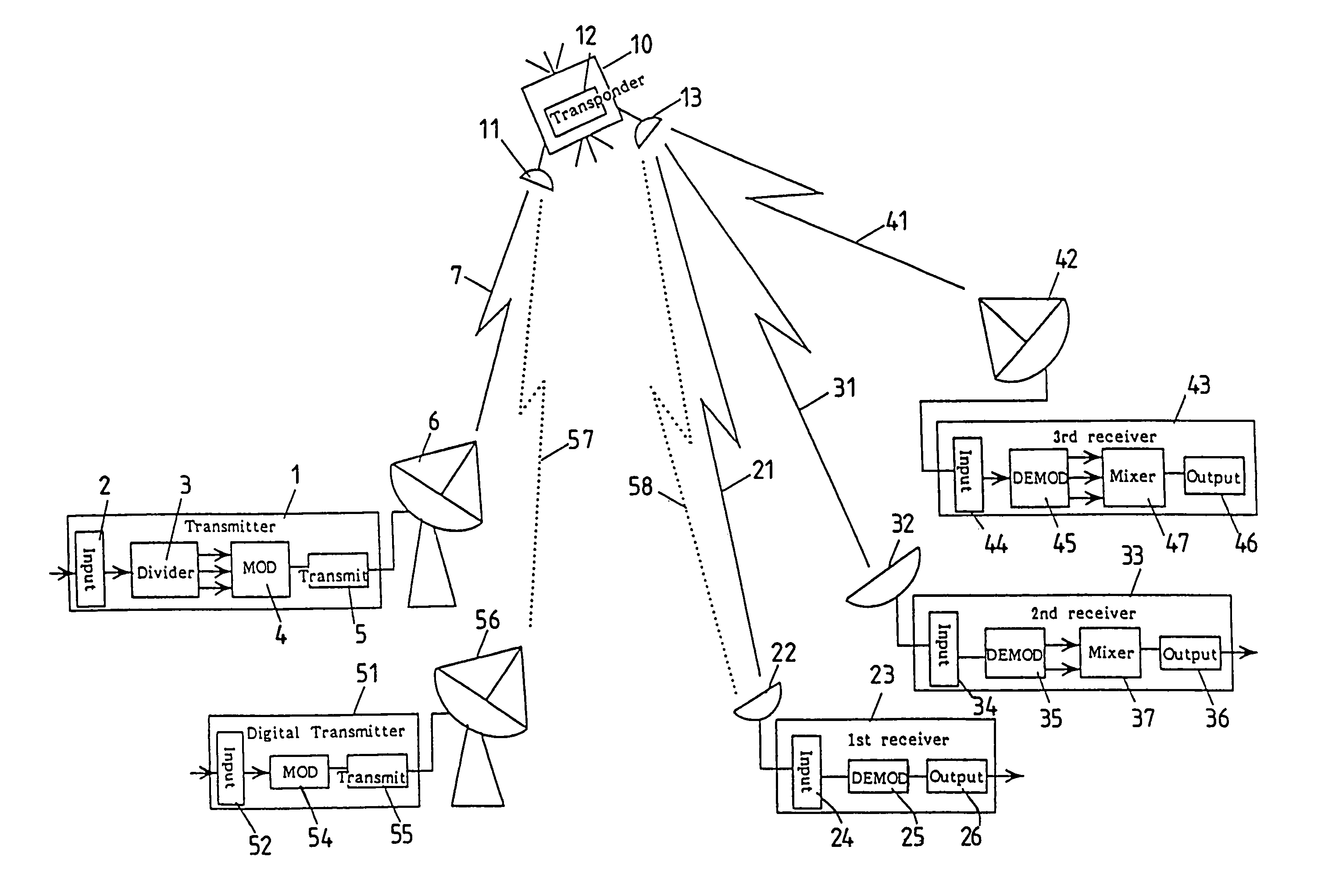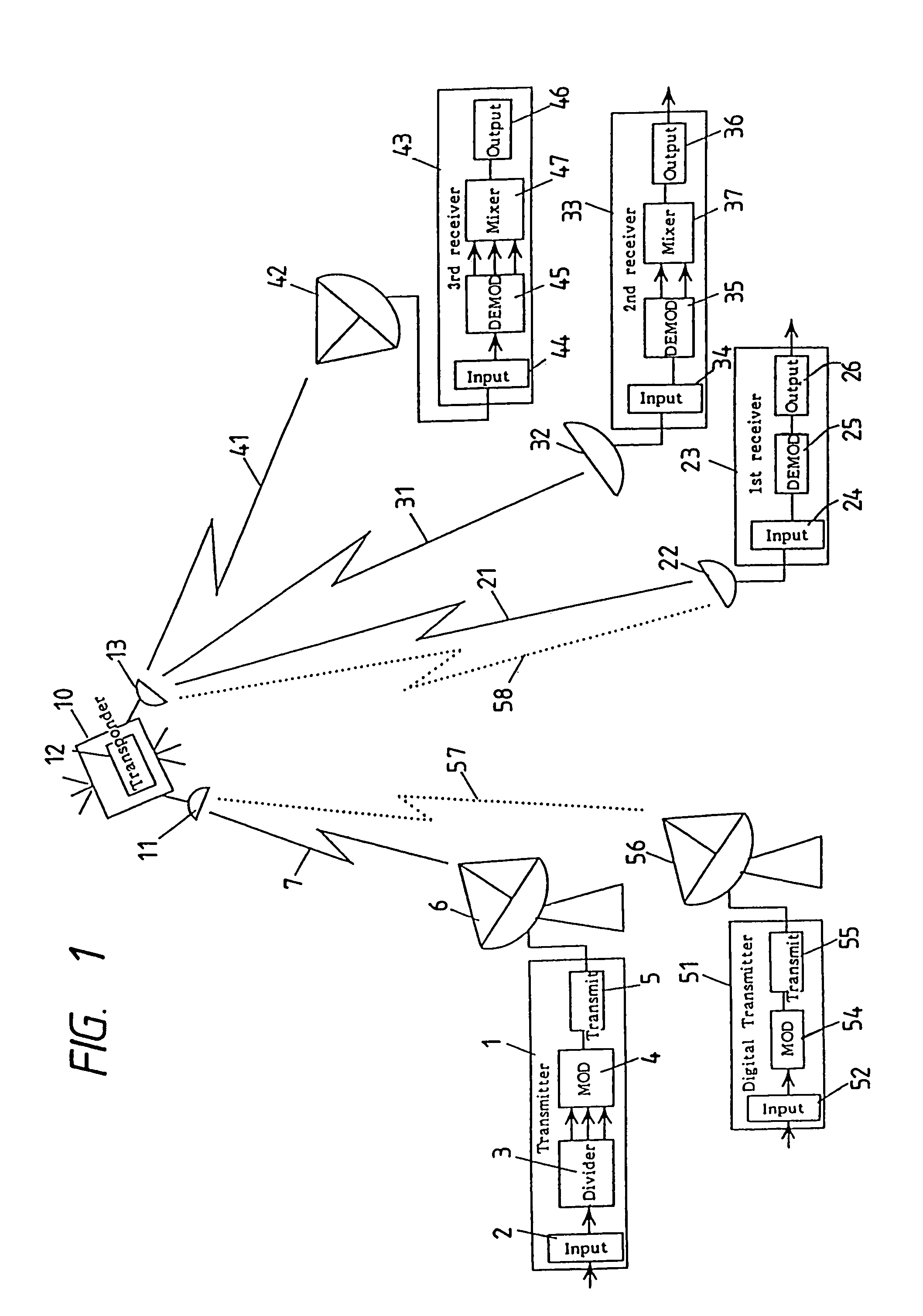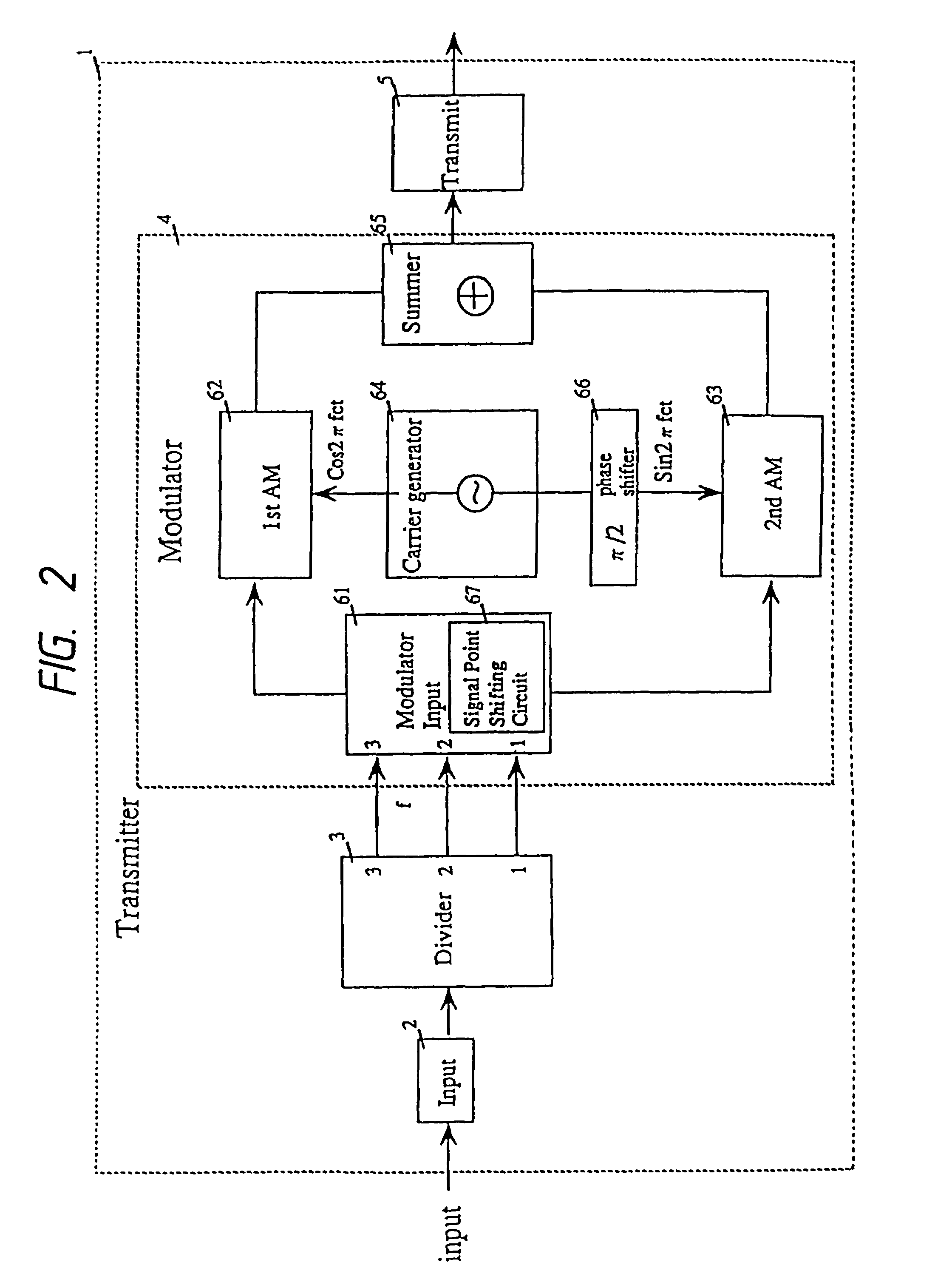Communication system
a communication system and communication technology, applied in the field of communication systems, can solve the problems of inability to go further, inability to transmit hdtv signal corresponding ntsc channels, and inability to reach further, so as to achieve the effect of reducing the signal attenuating area and increasing the service area
- Summary
- Abstract
- Description
- Claims
- Application Information
AI Technical Summary
Benefits of technology
Problems solved by technology
Method used
Image
Examples
embodiment 1
[0166]One embodiment of the present invention will be described referring to the relevant drawings.
[0167]FIG. 1 shows the entire arrangement of a signal transmission system according to the present invention. A transmitter 1 comprises an input unit 2, a divider circuit 3, a modulator 4, and a transmitter unit 5. In action, each input multiplex signal is divided by the divider circuit 3 into three groups, a first data stream D1, a second data stream D2, a third data stream D3, which are then modulated by the modulator 4 before being transmitted from the transmitter unit 5. The modulated signal is sent up from an antenna 6 through an uplink 7 to a satellite 10 where it is intercepted by an uplink antenna 11 and amplified by a transponder 12 before being transmitted from a downlink antenna 13 towards the ground.
[0168]The transmission signal is then sent down through three downlinks 21, 32, and 41 to a first 23, a second 33, and a third receiver 43 respectively. In the first receiver 23...
embodiment 2
[0265]A second embodiment of the present invention is featured in which the physical multi-level arrangement of the first embodiment is divided into small levels through e.g. discrimination in error correction capability, thus forming a logic multi-level construction. In the first embodiment, each multi-level channel has different levels in the electric signal amplitude or physical demodulating capability. The second embodiment offers different levels in the logic reproduction capability such as error correction. For example, the data D1 in a multi-level channel is divided into two, D1-1 and D1-2, components and D1-1 is more increased in the error correction capability than D1-2 for discrimination. Accordingly, as the error detection and correction capability is different between D1-1 and D1-2 at demodulation, D1-1 can successfully be reproduced within a given error rate when the C / N level of an original transmitting signal is so low as disable the reproduction of D1-2. This will be...
embodiment 3
[0283]A third embodiment of the present invention will be described referring to the relevant drawings.
[0284]FIG. 29 is a schematic total view illustrating the third embodiment in the form of a digital TV broadcasting system. An input video signal 402 of super high resolution TV image is fed to an input unit 403 of a first video encoder 401. Then, the signal is divided by a divider circuit 404 into three, first, second, and third, data streams which are transmitted to a compressing circuit 405 for data compression before further delivered.
[0285]Similarly, three other input video signals 406, 407, and 408 are fed to a second 409, a third 410, and a fourth video encoder 411 respectively which all are arranged identical in construction to the first video encoder 401 for data compression.
[0286]The four first data streams from their respective encoders 401, 409, 410, 411 are transferred to a first multiplexer 413 of a multiplexer 412 where they are time multiplexed by TDM process to a fi...
PUM
 Login to View More
Login to View More Abstract
Description
Claims
Application Information
 Login to View More
Login to View More - R&D
- Intellectual Property
- Life Sciences
- Materials
- Tech Scout
- Unparalleled Data Quality
- Higher Quality Content
- 60% Fewer Hallucinations
Browse by: Latest US Patents, China's latest patents, Technical Efficacy Thesaurus, Application Domain, Technology Topic, Popular Technical Reports.
© 2025 PatSnap. All rights reserved.Legal|Privacy policy|Modern Slavery Act Transparency Statement|Sitemap|About US| Contact US: help@patsnap.com



